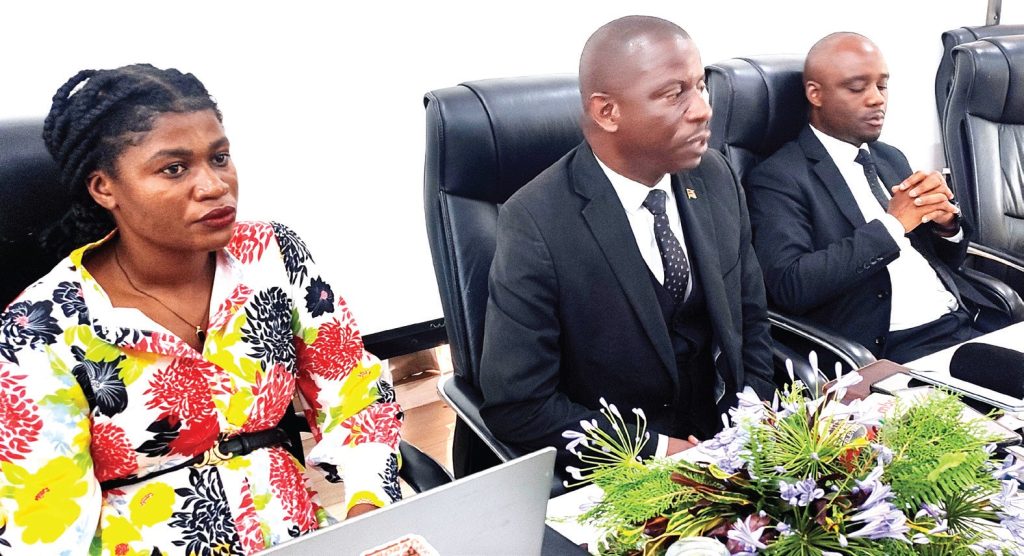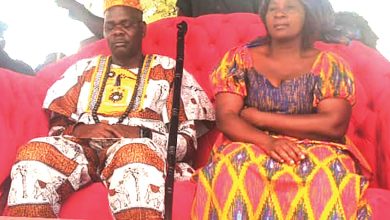CSOs gear up for CDF demos
Civil society organisations (CSOs) and Malawi Local Government Association (Malga) have threatened legal action and demonstrations if Parliament passes the Constituency Development Fund (CDF) Bill.
The CSOs—National Advocacy Platform (NAP), Centre for Social Accountability and Transparency (Csat), Malawi Economic Justice Network (Me j n), Cathol i c Commission for Justice and Peace (CCJP), National Anti-Corruption Alliance (Naca), NGO-Gender Coordination Network (NGO-GCN), Centre for Human Rights and Rehabi litation (CHRR), Ny ika Inst i t u te, Youth and Society (YAS), Centre for Civil Society Strengthening (CCSS), Youth Decide Campaign (YDC), Community-Based Organisations Coalition—and Malga yesterday jointly stressed that the Bill must be rejected.

Reading out a statement on behalf of the organisations at a press briefing in Lilongwe, NAP chairperson Benedicto Kondowe described the bill as unfortunate.
The stakeholders have since warned Parliament that if the Bill gets to the House floor, CSOs will hold demonstrations and take legal action.
The CSOs have also urged President Peter Mutharika not to assent to the Bill in the event that Parliament passes it.
Kondowe called on MPs to respect the Constitutional Court ruling that Section 5.1b of the Local Government Act, which brings MPs into the council, is unconstitutional because it violates the doctrine of separation of powers and outlawed legislators’ involvement in the management of CDF.
He said the Bi l l is not a constitutional reform, but a threat to decentralisation, noting that centralising CDF at Parliament level instead of empowering councils will promote abuse of the fund.
Said Kondowe: “The Bill is nothing short of a calculated attempt to reverse a binding court judgement, rewrite the Constitution for partisan convenience and hand MPs unchecked authority over public resources. It is an assault on constitutionalism, a betrayal of judicial authority and a blatant attempt to entrench political control over development financing.
“It is not in the best interest of Malawians and it is an abuse of their legislative powers.”
Weighing in, Malga executive director Hadrod Mkandawire said MPs need to know that they are in power on behalf of Malawians and that the people they represent are against the constitutional amendment aimed at giving powers to MPs to manage the CDF.
YDC coordinator Mwandida Theu said Parliament must not be used to set bad precedent in overturning the judgement of the Constitutional Court, adding that allowing such a Bill will promote a culture of Parliament fighting court rulings that are not in MPs’ favour.
She said: “MPs are supposed to hold the Executive accountable and to have MPs manage CDF will be a conflict of interest.
“If MPs control the K5 billion CDF without professional structures, we must prepare for development to be dependent on political roles and not meeting the public needs. If this is the case, development will go to hand-clappers and not necessarily people that need it.”
CHRR executi ve di rector Michael Kaiyatsa also said allowing MPs to manage CDF will politicise development.
Kaiyatsa , who is also chairperson of National Alliance Against Corruption, said citizens’ participation in development will also be affected if the CDF is controlled by MPs.
Nyika Institute executive director Moses Mkandawire called on MPs to follow the rule of law and not use the law as a tool to exert authority or control over others.
He said Malawians are against the arrangement being advanced by MPs and there is need to use the local government structure to promote participation of people in development.
In an interview, a member of the task force that initiated the Bill, Mzimba South MP Emmanuel Chambulanyina Jere, said the Bill has been handed over to the Legal Affairs Committee of Parliament.
He said the committee is expected to make consultations with all relevant stakeholders for their views or inputs.
Said Jere: “Once consultations are done, the Bill will come on the floor and it will either pass or get rejected.”
Earlier this year, the High Court, sitting as a Constitutional Court, delivered a landmark judgement in Registered Trustees of the Malawi Local Government Association v Attorney General, Constitutional Case No. 3 of 2023, in which it declared that the involvement of MPs in the management, prioritisation and implementation of the CDF and Water Resources Fund (WRF) violated the doctrine of separation of powers under Sections 7, 8 and 9 of the Constitution and improperly intruded into the core functions of the Executive.
The court further held that the presence of MPs in councils as voting ex-officio members created a conflict of interest that compromised their oversight mandate and breached principles of accountability and good governance.
The court, therefore, ordered that MPs should be excluded from these functions.





